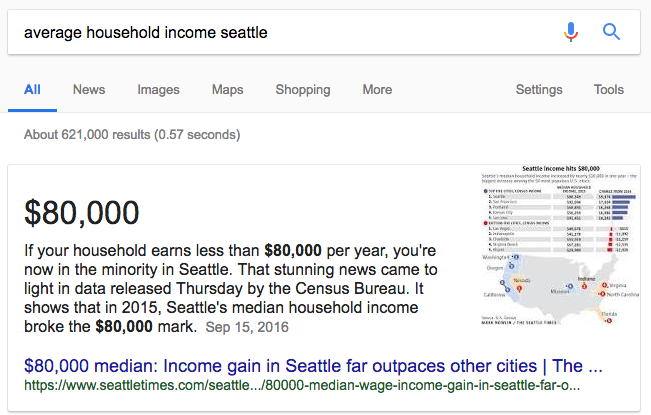Let me start off by saying that budgeting isn’t fun nor is it glamorous.
It’s usually the people who don’t budget that are driving the nice cars, having a grand time out on the town, and always have the latest tech.
And you know what? They may look well off on the surface, but deep down their finances are hurting immensely.
People that don’t budget tend to spend their money on material goods, meaning there is no money left for emergencies or retirement.
When you don’t have a plan for your money, it’s easy to “think” that you can afford a $300 monthly car payment. Each month is spent living paycheck to paycheck. What happens when the car breaks down?
Stress, because there isn’t any money in the bank to fix it and something has to give, whether that be food for the month or increased credit card debt so that you can continue to drive to work.
Budgeting means rocking an old iPhone 4S (sadly, this is my case) that sometimes crashes, while you save $25 per month until you can afford an upgrade. Yup, budgeting means knowing your phone will eventually break down and if you want the newest replacement, a $900 phone will take you three years to save the money at $25 per month.
However, sporting that iPhone 4S does come with its perks. Because, if you’re an awesome budgeter, you’ll be prepared for when life gives you lemons (emergencies)…
“Alright, I’ve been thinking…
When life gives you lemons, don’t make lemonade. Make life take the lemons back!
What am I supposed to do with lemons?
Demand to see life’s manager! Make life rue the day it thought it could give you lemons!” -Cave Johnson

This post may contain affiliate links for which supports this blog when a purchase is made. Thank you for supporting my blogging adventures!
Budgeting tips for beginners
Budget Tip #1 – The ultimate guide to budgeting
Great budgeting, like most life skills, is something that is learned. What happens when schools don’t teach people how to effectively budget?
No one learns how to manage their money, causing people to make poor financial decisions.
I loved it when financial expert, Dave Ramsey, said, “It’s not your fault if you were born poor, but it is your fault if you stay poor.” Dave is eluding to the need for people to take control of their finances, through self-financial education, and not relying on anyone else to teach you about money management.
It’s unfortunate, but schools are only looking to get you trained enough to become a contributing member of society and life skills are assumed to be taught at home, which is rarely the case.
What happens to people that try and start a budget without financial education? They usually end up making a crucial budget mistake that hurts their families finances.
In order to help you come up with the perfect budget, I’ve written the ultimate guide to budgeting that helps you walk through the budgeting process. The ultimate budgeting guide is a great tool, but even better is the free budgeting course that I’ve created to help you create the perfect budget and master money management.
Budget Tip #2 – Budgeting is hard if your income is low
There are two parts to budgeting that matter, your income and expenses. The goal is to make sure that your income is greater than your expenses, otherwise known as saving money.
We all have expenses such as the need to pay rent, utilities, and eat food. But do you make enough money to cover your expenses?
A successful budgeter knows the minimum amount of money they need to bring in each month in order to pay for their basic needs. You can’t earn $30,000 a year ($2,500 per month) and have your basic expenses be $3,000. If this was the case, you would be generating $500 worth of debt each month.
Related:
Do you make at least the average income of your city?
One of the best ways determine if you’re low income, or at least should try and earn more money, is to compare your household income to your local communities.
And I don’t mean for you to go around asking random people on the street their income. Do a quick Google Search for “Average household income in (Your City).”

Most communities are set up so that being average is enough to get by. So if you’re communities average income is $50,000, but you only make $30,000, then I would suggest looking for ways to increase your monthly income.
What does that look like for you? For some people that means looking for a different job so that they can get a pay bump, or starting your own side hustle, or even getting a part-time job on the side.
It’s up to you to decide what works best for you and your family.
Related:
- Here is how to make budgeting EASIER!
- Can a no spend challenge save you money?
- What to do if you’re BROKE and BARELY SURVIVING!
Budget Tip #3 – Your budget isn’t effective if you can’t stick with it
I don’t have much to say on this one as it’s kind of self-explanatory. If you find yourself spending $400 on groceries, but have only budgeted for $200, then your budget is not effective.
Budgeting is an iterative process. This means you might try budgeting $400 per month for groceries and $100 for clothing and seeing if it works. If you keep spending $450 on groceries and only $50 on clothes, you’ll have to adjust and make $450 your grocery budget and only allowing yourself $50 for clothes.
Budgeting is rarely done perfectly the first time around and usually takes a minimum adjustment of once per month.
Budget Tip #4 – Your entire income needs to be accounted for in your budget
When you start your budget, you should make sure that your expenses are covered assuming you get your lowest possible salary. In other words, if you didn’t do any overtime or earn any extra money, how much money would you earn? Does that amount of money cover all your expenses such as rent, food, and utilities?
Let’s say the lowest paycheck that you could receive was $2,000. Let’s also assume that the only expenses you have are $1,000 for rent, $400 for food, and $100 for gas. You’ve already accounted for $1,500 worth of expenses, but the extra $500 needs to be dedicated (or assigned) to something. I would recommend dedicating that $500 to savings.
Did you earn a $1,000 bonus at work? Great! That extra money still needs to be assigned to something in your budget!
Click to tweetClick To TweetBudget Tip #5 – Be prepared for emergencies
I’m sure that most of you can attest, life isn’t always perfect. Unfortunately, the car does break down and the kids do need to go to the doctor.
So don’t stress about where the money is coming from. Instead, plan ahead with an emergency fund because you know these things will happen!
An emergency fund is money that you set aside specifically for emergencies. In my budget, I have an emergency fund that can cover at least 3-6 months worth of expenses in case something happens such as a job loss.
In addition to the large emergency fund, I also have miniature funds that are specific to the emergency. These miniature funds are for things such as Auto Repair, Phone Replacement, and Medical Visits.
Related:
Budget Tip #6 – Don’t forget to save for retirement
I know it’s fun to live in the here and now, but imagine working for 40 years and not having a single cent saved for retirement! I’m sure the last thing anyone wants to do is work until they die.
I recommend getting with a financial planner to determine how much you should be saving for your retirement.
Budget Tip #7 – Do your budgeting on a consistent basis
I love to procrastinate as much as the next person, but budgeting is best done when your budget is updated at least once a week.
If you forget to update your budget or start doing it once a month, it will be harder to stay within budget. That’s because you’ll start to forget how much money is left for items such as groceries or eating out.
Budget Tips #8 – Always learn more about finances
Knowledge is power and knowing how to build an awesome budget is the first step to building wealth. If you want your family to succeed financially, it starts with learning more about budgeting and saving money.
That’s why I’ve created a free budgeting course to help you master your budget and save more money. This course is perfect for anyone that is ready to stop surviving and start thriving with their finances.
With your budget in order, you’ll pay off more debt, save more money, and have less stress when it comes to finances.
Let me know if you have any questions in the comments below!
